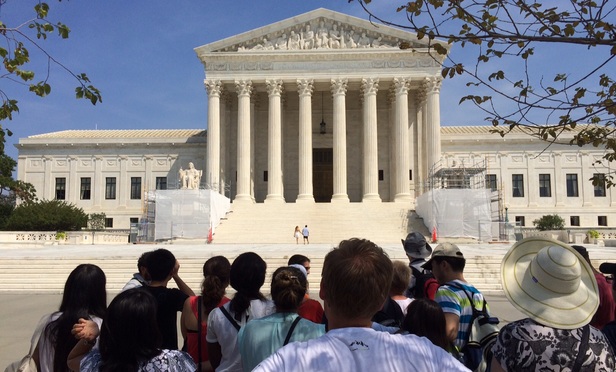Ortiz said there was never a difference of opinion between him and Griffin but just how they understood the question, which even Roberts acknowledged was confusing. “Dick thought the chief was assuming something when he wasn’t,” Ortiz said. “I assumed when the chief was asking it, he wasn’t predisposed in our case.”
Ortiz continued, “If you had answered the way Dick did to the way the chief justice was actually asking it, you were basically giving up the right to file collective, joint actions for any number between two and 50. You were saying regardless of what alternative forums existed, the employer could bind the employee to the rules of the forum and they could do the bad work rather than the employment agreement.”
Ortiz told Griffin it was not his fault for the confusion. “Dick feels just terrible about this,” he said. “His term is up at the end of this month and well, he just feels terrible.”
William Suter, former clerk of the Supreme Court, remembers getting one letter during his tenure from a lawyer seeking to correct an oral argument statement. “I sent the letter from counsel to the chief and he transmitted it to the [private] conference [of the justices],” he said. “Counsel’s letter and the clerk’s memo were filed in the permanent case folder. The transcript was not changed.”
While rare in the Supreme Court, lawyers sometimes do send letters correcting their misstatements in arguments to the lower courts. In 2014, the Justice Department, for instance, sent such a letter to the U.S. Court of Appeals for the Ninth Circuit. The letter told the court that government counsel made an “inadvertent misstatement” during oral arguments by saying that companies receiving national security letters were free to disclose that fact.
In a footnote in his law review article on oral argument in the Supreme Court, Mayer Brown’s Stephen Shapiro said that on “rare occasions,” a lawyer might realize after arguments that he or she made an “improvident concession” on a major point. In that situation, he said, counsel should send a “concise letter” to the justices through the clerk, with 10 extra copies, referring to the question and clarifying the response.
“Needless to say, there is no assurance that the justices will honor this kind of retraction,” he wrote.



